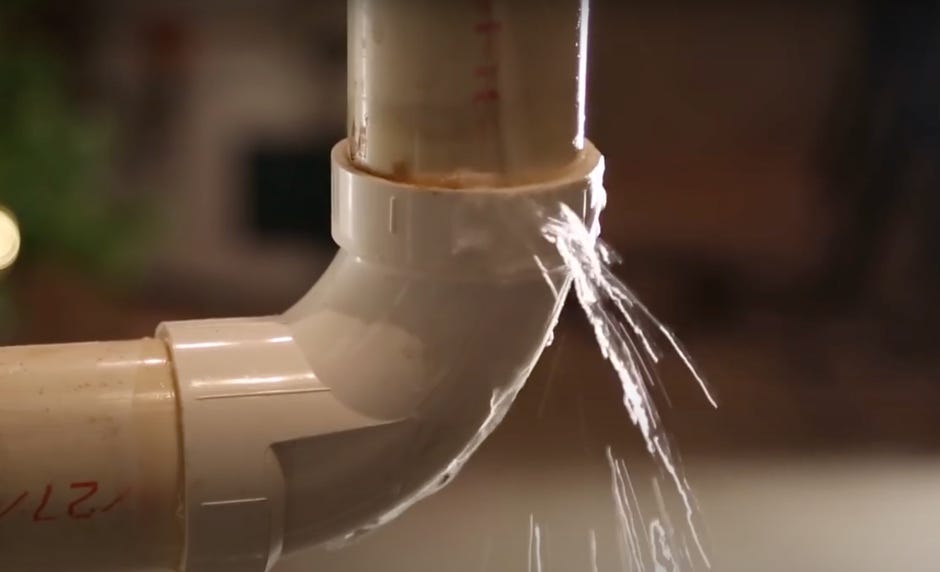Understanding the Technique of Shutting Off Your Main Water Line Due to a Burst Pipe
Understanding the Technique of Shutting Off Your Main Water Line Due to a Burst Pipe
Blog Article
The article author is making a number of great pointers relating to Got a Burst Pipe? Turn Off Your Main Water Valve in general in the article which follows.

You must understand exactly how to switch off your major water line if you suffer from a burst pipeline. Do not await a plumbing emergency before finding out how to get this done. Besides, other than emergency leaks, you will need to switch off your primary water shutoff for plumbing repair work or if you leave for a lengthy trip. Discover even more about it in this small overview.
Why Must You Close the Main Line Off?
Familiarizing on your own with just how your mainline turns on as well as off can save you throughout an emergency. For example, when a pipeline unexpectedly bursts in your home, you'll be besieged with panic. Hence, you can easily close the valve off and also avoid a lot more damage if you recognize what to do. Additionally, closing this off assures you do not have to take care of a sudden flood in your house.
On top of that, closing and also opening up the valves periodically ensures they do not obtain stuck. It is also the very best time for you to check for corrosion or various other busted connections. Furthermore, make it a point to inform other relative on what to do. This makes routine upkeep as well as managing emergency situations a lot simpler. You can potentially save yourself thousands of dollars in repairs.
Where is This Key Valve Situated?
The primary water line supply can differ, so you may require to locate time to determine where it is. However, when your house is getting soaked due to a ruptured pipeline, you do not have the deluxe of time throughout an emergency. Thus, you should get ready for this plumbing circumstance by finding out where the shutoff is located.
This shutoff valve might appear like a ball valve (with a lever-type handle) or a gate shutoff (with a circle faucet). Placement relies on the age of your residence and also the environment in your area. Check the following usual areas:
Must This Constantly Be Shut Off?
Besides emergencies, repair work, or long vacations, you might not require to shut off the primary valve. As an example, so one fixture has issues, you can switch off the branch shutoff in that spot. By doing this, you can still utilize water in other parts of your house. For finest results, call a trustworthy plumber for emergencies.
What to Do When a Pipe Bursts in Your Home
A burst pipe is one of a homeowner's worst nightmares. Not knowing the signs and being unprepared for this plumbing issue can result in more water damage and clean up. Here are the warning signs of a pipe about to burst and the steps you can take if it happens.
Warning Signs for Burst Pipes
Rusty, discolored water with a bad smell Puddles under your sinks Abrupt changes in water pressure A spike in your water bill Clanging noises coming from pipes behind the walls What to Do When a Pipe Bursts
Turn off your water. The sooner you do this, the better. Shutting off your main valve will help minimize the damage to your home.
Drain the faucets. After the water has been turned off, drain the remaining water by opening your faucets. Doing so will help prevent areas from freezing and also relieve pressure within your pipe system to avoid more bursts.
Locate the burst pipe. Look for bulging ceilings, warping and other signs of where the water damage has occurred. Once you locate the pipe, you will be able to determine if it is a small crack that can be patched or a major repair that needs to be dealt with right away.
Call a professional. If you need significant repairs, contact a professional to come in as soon as possible. At Mr. Rooter Plumbing of Oneida, we offer 24/7 emergency service for your convenience.
Document the damage. If you have extensive pipe damage, be sure to take photos of the affected areas so you can document a claim with your insurance. Take close-up photos of the damage and use a measuring tape to show how high the water is. You should also take photos from different angles for a wider picture of the affected areas.
Start cleaning. After you have documented the damage, start cleaning up the water as soon as possible. The longer the water sits, the higher the chance that mold will develop.
https://www.mrrooter.com/oneida/about-us/blog/2020/june/what-to-do-when-a-pipe-bursts-in-your-home/

We were brought to that report on Got a Burst Pipe? Turn Off Your Main Water Valve from an associate on another web blog. If you please set aside a second to distribute this post if you appreciated it. Thank you for taking the time to read it.
Schedule Now Report this page